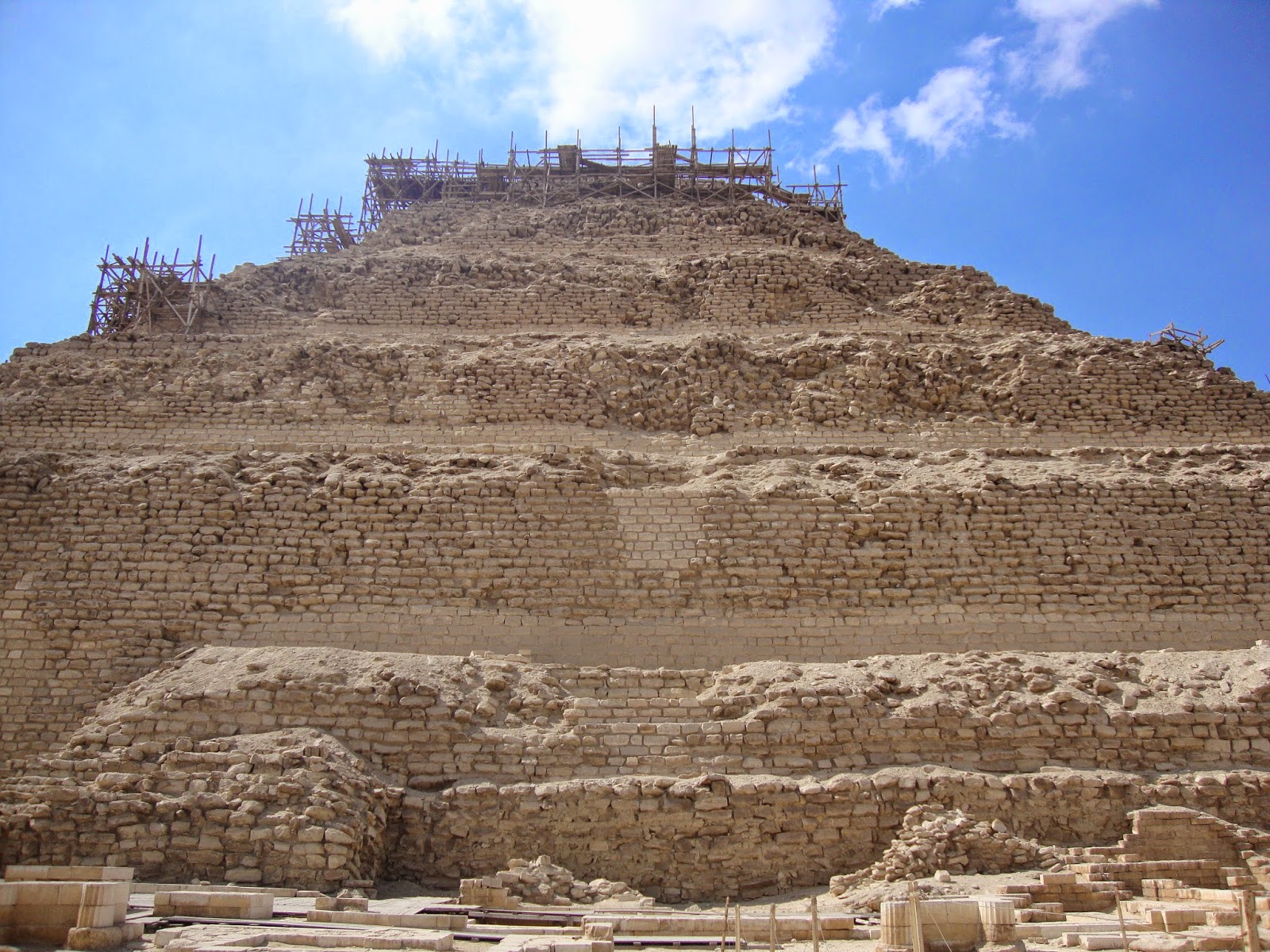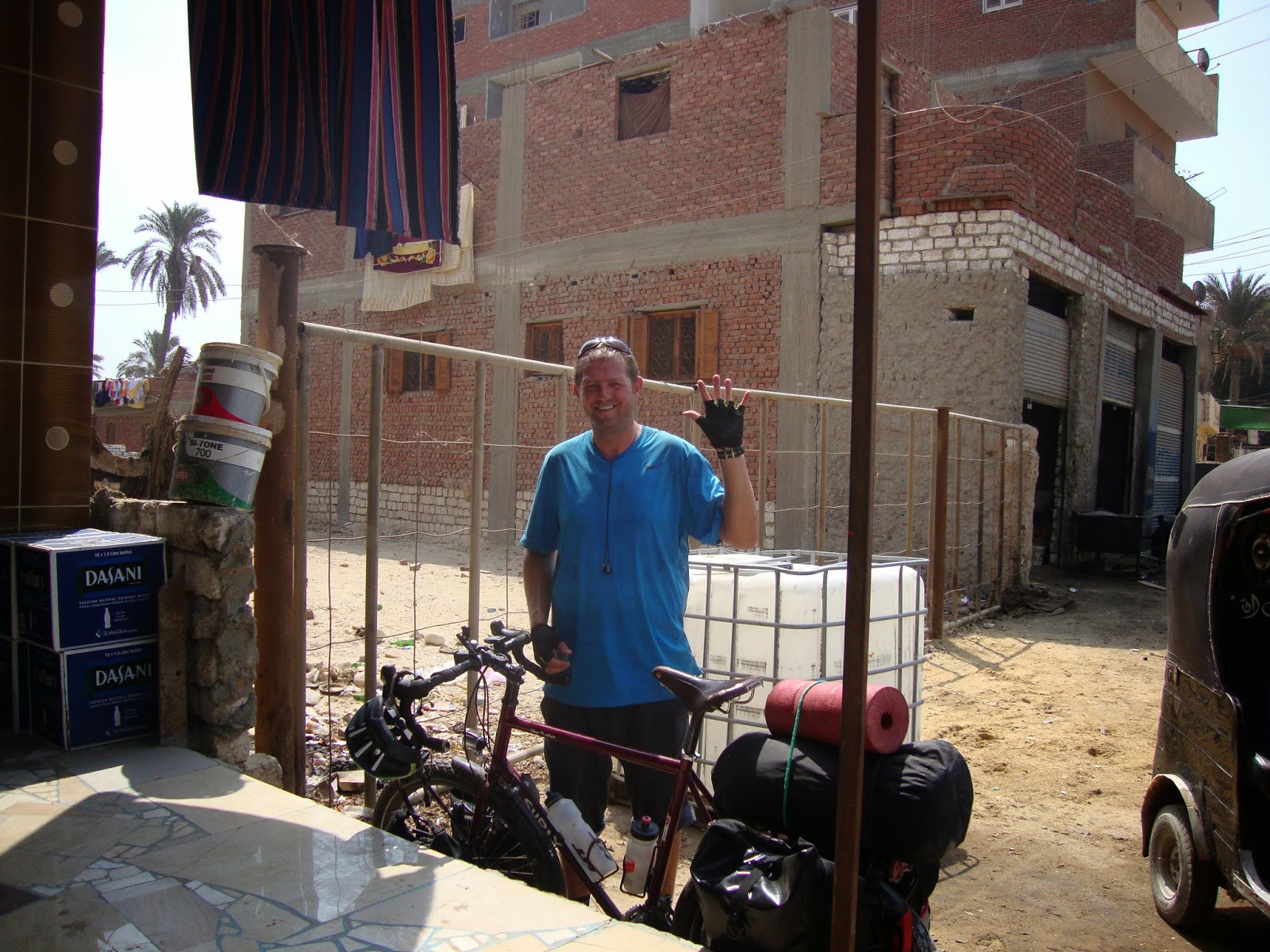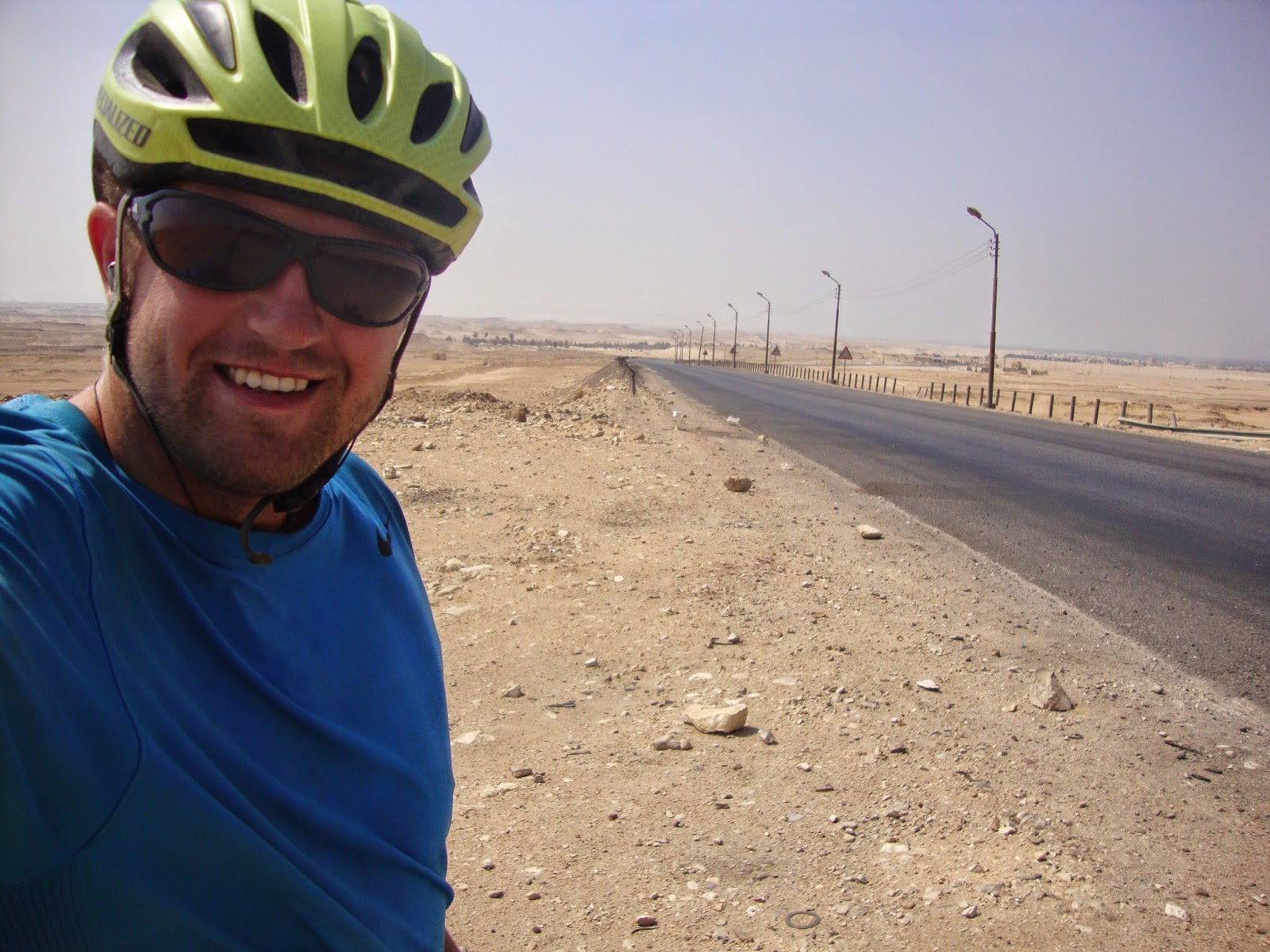Egypt
The utter madness that is Egypt begins as soon as you get off the plane. While waiting at customs you are accosted by taxi drivers wanting to take you somewhere via a souvenir shop at a ridiculously inflated price. I guess they think that as you have just got off the plane you will have no idea of things actually cost. Unfortunately this welcome is just the beginning of the "Egyptian Experience". I have been to Egypt before and had a pretty good idea of what Egypt would be like but I had thought that after the revolution things may have got better. They haven't.
I spent around 10 days in Cairo, mostly just recovering from the past 3 months efforts, watching movies and going out to have a look around every day. I checked out the museum, Tahrir square but I mostly just wandered around looking at things. There is plenty to see and being the middle east its totally different from European cities.
In that way it was interesting but the Egyptian experience means that you are constantly hassled by people wanting to sell you stuff, ripped off because there are no prices on anything and treated poorly because you are clearly not Egyptian.
The Egyptians seem to view all tourists as a walking ATM's and its their duty to try and make the largest withdrawal they can before you leave. Then there is the killing, rape and sexual harassment of tourists that happens on a regular basis that mean that Egypt really isn't very nice. This article sums up the rest of the pproblem's.
Don't get me wrong there are many friendly, honest and helpful people there too but there just isn't enough of them.
My major concern in Egypt was security. Would it be safe to bike? So I went to the New Zealand Embassy in Cairo to register that I was I country and inform them of what my plans were. I had a good chat with the Consul there and her advice was to get back on a plane and leave as soon as possible. So probably not that safe.
The other issue was how safe would the road be. The rate of road deaths in Egypt is 183 people for ever 100000 cars. In New Zealand its 10 people per 100000 cars. So again not that safe. Here are some things I noticed while out and about on the roads in Egypt
- Seat belts along with indicators are not used
- 1 honk on the horn means I am coming through
- 2 honks means get out of the way I am coming through
- Helmets are never used on motorcycles
- The maximum number of people per motorcycle is 4.
- The 4 people can be 4 men, or more often 1 man, 1 or 2 women sitting side saddle and 1 or 2 babies/children
- You can go the wrong way up a one way street if you are riding a motorcycle
- If you are in a large truck you can overtake anywhere as the traffic coming the other way must get out of the way or they will be killed
- There are more lanes on the road than indicated. A 3 lane road will operate as 5 lanes and a two lane road has 3 and sometimes 4 lanes.
- Almost every car in Cairo had some kind of panel damage. Mostly along the side due to the extra lanes rule.
The road to the pyramid's at Giza. This was a highway reduced to 1 lane each way because of the sand and the rubbish on the road.
The sphinx and the pyramid's at Giza. There is something about this place that is very special. You walk up to the sphinx and the pyramid's are there in the background and its just amazing. Then you carry on up to the pyramid's and you get to see how massive they are. I sat there for an hour sitting between two of the pyramid's (they are around 200m apart) and the sphinx just looking at them watching the sun rise over Cairo.
This is the step pyramid of Djoser. This what the pyramid look like from the inside.
There was a heavy Police and Army presence all over Egypt. All government offices had armed Police outside mostly with AK-47's and Shotguns but also occasionally with heavy machine guns. There were also concrete blast shields to offer protection from bombs.
Here are two police vans, one covered with barbed wire and the other just a large van with 20/30 armed police inside. Little did I know I would get to spend some time with Egyptian police soon.
I left Cairo and the plan was to follow the Nile to Aswan. Not very complicated but I was a little worried about security so rather than camp in the desert I would make sure there was a roof over my head each night.
The 5000km mark
About half way through the 3rd day I was somewhere near Al Minah when I was stopped by the police. They checked my passport and visa and I continued on. Around half an hour later I looked behind me and there was the police following me. This lasted for around an hour until I got to a police checkpoint. There I was stopped again, my passport checked again and they wanted to know where I was going. I was then told I would be escorted to Al Minah. It was around lunch time so I told them I would need to eat and then I would go. The police followed me to a cafe, sat inside and waited for me to finish then it was back on the road.
This is the police van escorting me.
After around15km the police stopped and I was then handed off to another set of police. This time I had to put my bike in the back of the van (its a Toyota Hilux with a canopy).
This is the view out the back.
It was all a bit surreal. Im sitting in the back of an Egyptian police van there is a Beretta sub machine gun at my feet and a bullet proof vest on the seat next to me. The friendly policeman is busy telling me in broken English about his friend who has 4 wives and how he doesn't like one of them.
We drive for about 15 minutes then we stop at another Police check point. I get out as they want to see my passport again and I see a large Egyptian man wearing a balaclava and carrying an AK-47 start walking towards me. He seems to be the man in charge and we go though the passport/visa/where are you going again. Then its back in the van for the final stretch into Al Minah. We arrive at a checkpoint on the outskirts of the town where I am told to get out again. The man in the balaclava tells me that I will be escorted to a hotel and that I am to report to the police station in the morning before I go anywhere.
So I follow a police van into town and to the hotel.
The view over the Nile from my police recommended hotel.
The next day I head down to the police station as requested. Today would need to a rest day as the Egyptian police are well known for their bureaucracy and brutality so I thought this might take a while and that I must be very polite.
I went in, told them why I was here and I was put into an office with a guy sitting behind a desk with 2 mobile phones in front of him. He was dressed in plain clothes so I wasn't really sure who he was. I went through the story again of why I was here and he told me to wait.
Various other people came in and out and asked my who I was and why I was here. Some in uniforms, others in plain clothes with hand guns stuffed down the back of their trousers.
The man behind the desk got all my details, filled out some forms, made some calls and then sent someone to the hotel to check that I did have a bicycle and my story checked out.
We talked about my plans, drank some tea and it was suggested that it would be best if I took the train to Luxor. After 3 hours I was allowed to leave. So I went to the train station and got a ticket for the next day.
After arriving in Luxor I took a few days rest again and decided to get back on the train again to Aswan. I had to wait again in Aswan to get a visa for Sudan and then wait for the ferry to Wadi Haifa.
I have very mixed feeling about having to take the train and Egypt in general so that's why its taken me so long to write about it - well that and Karthoum is the first place in Sudan that has Internet.
I don't think that I was in any danger on the bike but in reality I have no way of knowing if it was dangerous or not. Its pretty easy to bundle a cyclist into the back of a car and drive off without anyone ever knowing so I guess that taking the train was the right thing to do.
I have read of of other cyclists who have been escorted by the police across Egypt so maybe I could have done that, but I didn't enjoy my time being followed by the police anyway. The police are hated in Egypt for very good reason's and spending time with them made me feel pretty uncomfortable.
There was always going to be parts of Africa that I couldn't bike but I didn't think it was going to be in Egypt. The whole experience was pretty disappointing and it lead me to question what I was doing here. Was biking across Europe enough already? Was it safe to doing this? Can I do this? Should I carry on?
Waiting in Aswan gave me time to think about all these things and what I came up with was this. I would regret it for the rest of my life if I didn't finish this ride and oddly the famous Steve Hansen (All Black coach) quote "flush the dunny and move on" seemed to sum up the situation perfectly.
Egypt had been shit but the friendliest country in Africa was next - Sudan




































Good to hear from you! I didn't expect that your journey through Africa would begin in such an interesting way, although I knew it wasn't going to be boring. Hopefully the next part of your journey will be less stressful and more enjoyable.
ReplyDelete